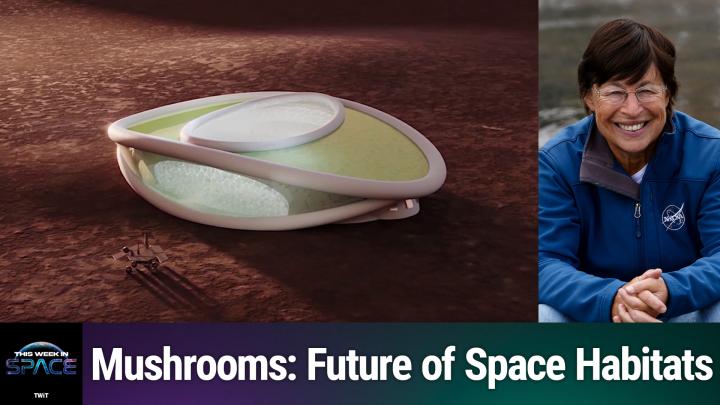The Future of Space Habitats: Growing Homes with Fungal Mycelium
AI-written, human-edited.
In a fascinating episode of This Week in Space, hosts Rod Pyle and Tariq Malik sit down with Dr. Lynn Rothschild, a Senior Research Scientist at NASA Ames Research Center and Adjunct Professor at Brown University, to discuss the groundbreaking concept of using fungal mycelium to construct habitats on Mars and the Moon.
Dr. Rothschild, a pioneer in the field of synthetic biology, explains how this innovative approach could revolutionize space exploration. The idea originated from a student project aimed at creating a biodegradable drone body using mycelium, the vegetative part of fungi. This led Dr. Rothschild to consider the potential of "mycotecture" - the use of fungal mycelium to grow structures and habitats.
One of the most exciting aspects of mycotecture is its adaptability. By adjusting the substrate and post-processing techniques, the properties of mycelium-based materials can be tuned to range from styrofoam-like to hardwood-like consistencies. This versatility makes it an ideal candidate for constructing off-world habitats, as it can be grown using local resources like regolith simulant and can conform to the unique constraints of extraterrestrial environments.
Dr. Rothschild's vision for a stable, self-sustaining habitat on Mars or the Moon involves a multi-layered system. The outer layer would consist of frozen water, followed by a layer of cyanobacteria that would process atmospheric gases and minerals, producing oxygen and nutrients for the innermost layer of fungal mycelium. This innovative approach could potentially create a livable environment for astronauts using the limited resources available on these celestial bodies.
The conversation also delves into other fascinating applications of synthetic biology in space exploration, such as the Astro Pharmacy project. This initiative aims to develop a miniaturized, on-demand drug production system for astronauts, ensuring access to necessary medications without the limitations of shelf life and storage space.
While these technologies are being developed with space exploration in mind, they also have significant potential for Earth-based applications. Mycotecture could be used to create sustainable, low-cost housing, while the Astro Pharmacy concept could revolutionize medicine in remote areas or for patients with rare diseases.
As Dr. Rothschild points out, developing these technologies for space allows for more freedom to explore revolutionary ideas without the constraints of existing infrastructure. By pushing the boundaries of what's possible in the harsh environments of space, we may uncover solutions to some of Earth's most pressing challenges.
To learn more about the incredible potential of fungal mycelium and synthetic biology in space exploration, tune in to the full episode of This Week in Space. Dr. Rothschild's insights and the engaging discussion between the hosts make for a truly compelling listen.
